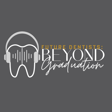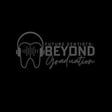
Dental Career Goals and Timelines
About the Hosts:
Dr. Savanah Craig is a seasoned dentist who hosts the podcast "Beyond Graduation." She offers invaluable insights into the transitional period from dental school to professional practice. Dr. Craig's dedication to educating and supporting new dentists has established her as a prominent figure in the dental community. Dr. Ronnetta Sartor is a highly experienced dentist and co-host of the "Beyond Graduation" podcast. Known for her extensive knowledge in dentistry and leadership, Dr. Sartor aims to guide recent dental graduates through the complexities of their early careers, combining professional pathway discussions with personal growth strategies.
Episode Summary:
In this enthralling episode of "Beyond Graduation," Dr. Savanah Craig and Dr. Ronnetta Sartor dive into the concept of "Time Horizon"—a pivotal aspect for dental professionals transitioning from school to practice. The episode explores the intricate balance between professional goals, personal growth, and the timeline that ties them all together.
Dr. Craig and Dr. Sartor begin by addressing how tightly scheduled their formative years were, transitioning every four years through high school, college, dental school, and residency. As they reflect on moving past these structured timelines, they emphasize the necessity of personal goal-setting without a pre-set system guiding them. Dr. Sartor cites Dr. Rice's book, "Is Everyone Smiling but You? Level Up your Life Practice Now," illustrating its relevance to the topic. The hosts delve into the soul-searching needed to understand what "endgame" looks like at various stages of their lives and careers.
The conversation takes a practical turn as the doctors discuss handling comparisons and competition within the dental field. They recount their experiences with peers and mentors, transforming potential comparisons into motivations for self-improvement. Dr. Craig brings a unique perspective being relatively fresh out of residency, detailing her path and the different comparisons she observes with her peers and colleagues. Both hosts share personal anecdotes and strategies for setting and achieving goals, highlighting the mental shift from perceiving milestones as rigid checkpoints to viewing them as evolving targets.
Key Takeaways:
- Structured to Self-Directed Goals: The transition from highly structured educational timelines to setting self-directed professional and personal goals.
- Competition and Comparison: The importance of transforming comparison and competition into motivation for self-improvement.
- Mentorship: Leveraging experiences and advice from mentors to guide and inspire one's own career path.
- Progress Over Perfection: Emphasizing progress and personal growth over stringent goal deadlines.
- Holistic Goal-Setting: The integration of professional, personal, emotional, and spiritual goals to achieve a balanced life.
Connect with Us:
- Savanah Craig, DDS: @savanahcraigdds
- Ronnetta Sartor, DMD: @dr_sartor
- FutureDentists Beyond Graduation: @futuredentistsbeyondgraduation
- Dental Residency Guide and Beyond Graduation eBooks: https://ignitedds.com/subscription-resources/
- Other Books: The 12 Week Year: Get More Done in 12 Weeks than Others Do in 12 Months by Brian Moran, Michael Lennington et al. and Is Everyone Smiling but You? Level Up Your Life Practice Now by Dr. David Rice



